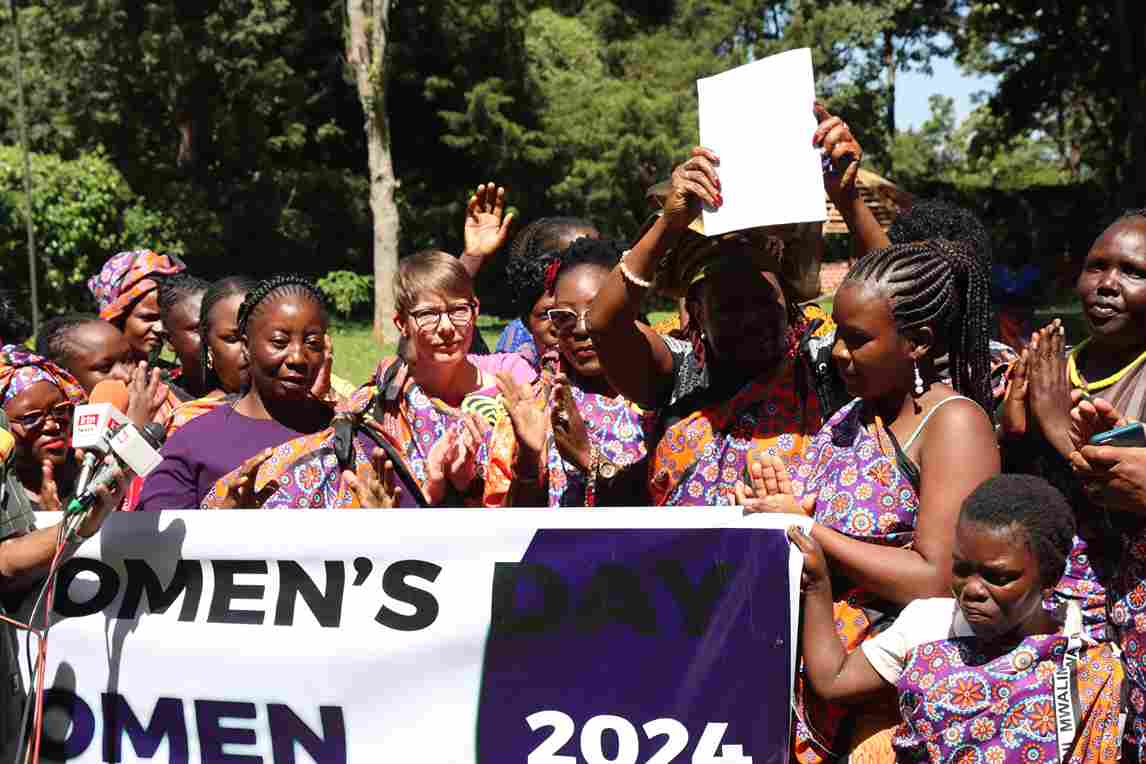As the world commemorated International Women’s Day, KICTANet stood at the forefront of the fight against technology-facilitated gender-based violence (TFGBV). 2023 holds a special significance for us, as we had the honour of training over 40 Women Human Rights Defenders (WHRDs) from all 47 counties in Kenya.
Organised in partnership with the Defenders Coalition, the two-day event, themed #InspireInclusion, aimed to raise awareness, document experiences, and share strategies to combat TFGBV.
Nestled in the rural heartland of Kakamega County, the training resonated with the vibrant rhythms of Isukuti, adding a cultural richness to the discussions.
The primary goal was clear: empower WHRDs to recognise, report, and prevent incidents of TFGBV.
The event sought to equip them with the necessary skills and resources to navigate the digital landscape safely while identifying and addressing potential threats online.
However, the event uncovered a series of challenges faced by WHRDs, including obstacles that hinder their practical engagement with technology and their ability to combat TFGBV online.
From societal norms to limited resources and language barriers, each challenge presented a unique hurdle in our quest for gender equality and digital safety.
Challenges Faced by Women Human Rights Defenders
Societal Upbringing: Societal norms in rural areas often limit women’s access to education, hindering their understanding of technology. An example is the stereotype that women belong in the Kitchen.
Consequently, when faced with TFGBV, women may retreat, silence their voices, and consequently be denied their freedom of expression, which is crucial for WHRDs.
Lack of Resources: The absence of electricity in rural regions significantly hinders women’s use of basic technology like smartphones.
Access is needed to improve their engagement with tech. It forces them to travel long distances to urban centres for essential e-services, such as filling out forms or printing documents for educational pursuits.
Cost of Technology Resources: In rural areas, the cost of technology resources, like computer packages, is often prohibitive for many.
Even when offering free services, tech hubs need help to sustain themselves, leading to a precarious situation where communities’ digital literacy initiatives are at risk due to financial constraints.
Language Barrier: The language divide further complicates matters, requiring trainers to switch between English and Swahili, often resorting to more straightforward language to ensure comprehension.
Already complex tech jargon becomes an additional challenge for women in rural areas seeking to understand and combat TFGBV online.
Lack of Capacity Building: Digital literacy programs are predominantly carried out in urban spaces, leaving rural women needing consistent access to training. Even when participants are taken for training in urban areas, the knowledge transfer back to their communities still needs to be improved.
The sporadic nature of these programs results in gaps in understanding, hindering effective resistance against TFGBV.
Misconceptions About Technology: Many women in rural areas associate technology solely with complex coding or computer usage.
This misunderstanding prevents them from recognising the broader applications of technology in addressing and resisting tech-facilitated online gender-based violence.
Strategic Use of Litigation: Efforts to combat TFGBV often require legal recourse, yet many WHRDs lack the legal knowledge and support to navigate these processes effectively.
This underscores the need for training in legal strategies to address online censorship, surveillance, and other digital rights violations.
In a society where 40% of women have faced sexual crimes in their lifetime, the urgency of digital capacity building cannot be overstated.
Empowering WHRDs with the tools and knowledge to navigate the digital landscape safely is paramount to ensuring their continued advocacy and protection of women’s rights.
At KICTANet, we recognise that the fight against TFGBV requires a multifaceted approach.
It calls for concerted efforts to address these challenges head-on and empower WHRDs with the tools they need to thrive in the digital era.
We are committed to creating a safer, more inclusive digital environment for all women through continued advocacy, education, and support.
Neema Mujesia is the communications officer at KICTANet. She works in the Gender Digital Rights Program and advocates for human rights for all in the technology industry.
![]()




